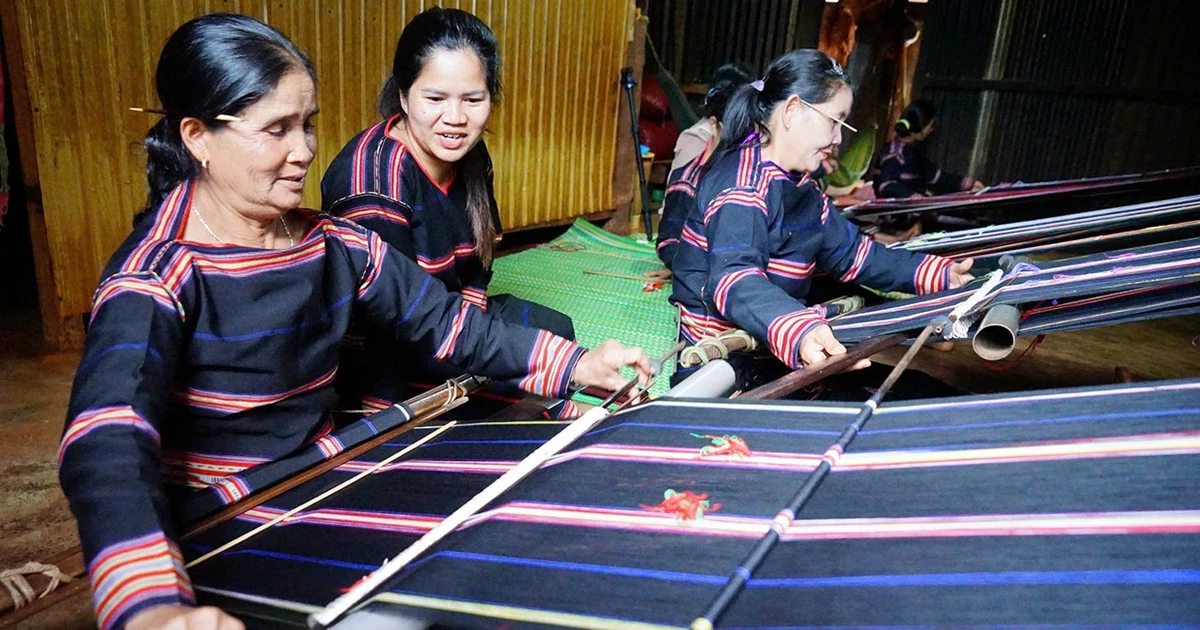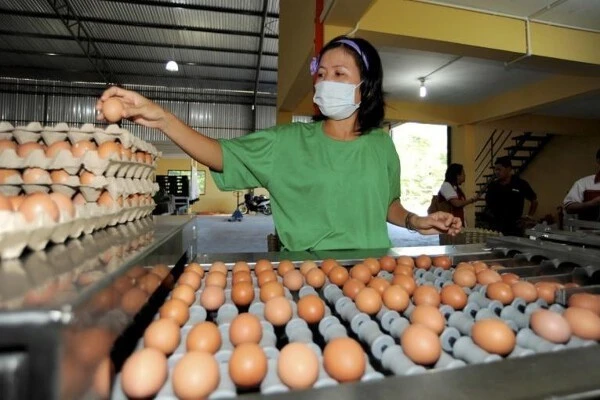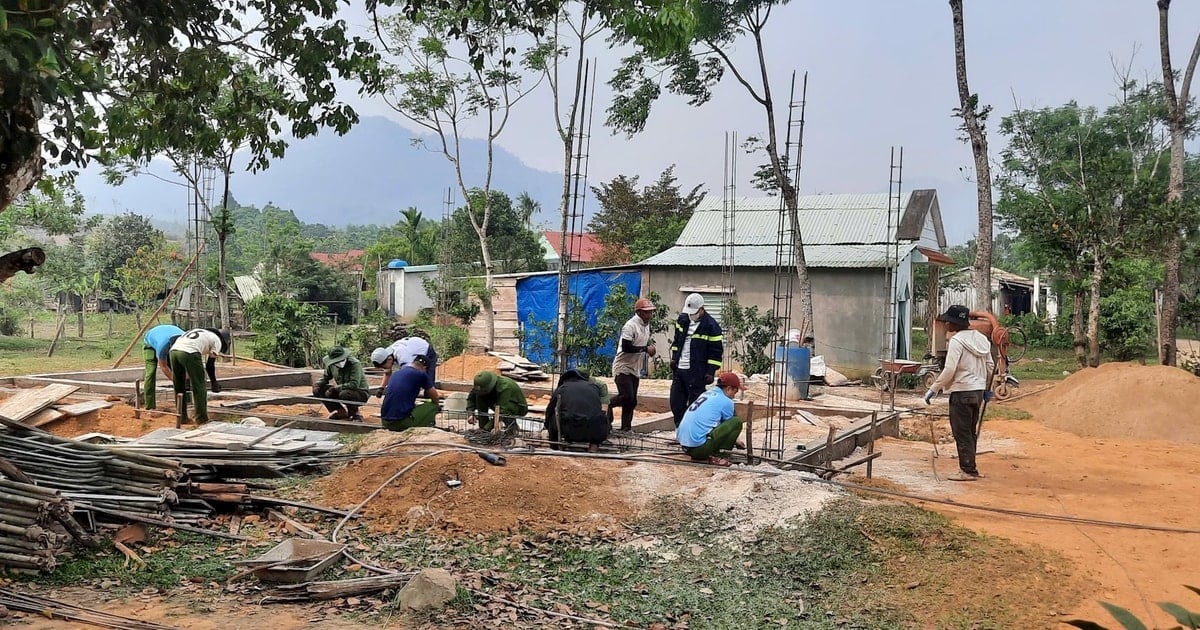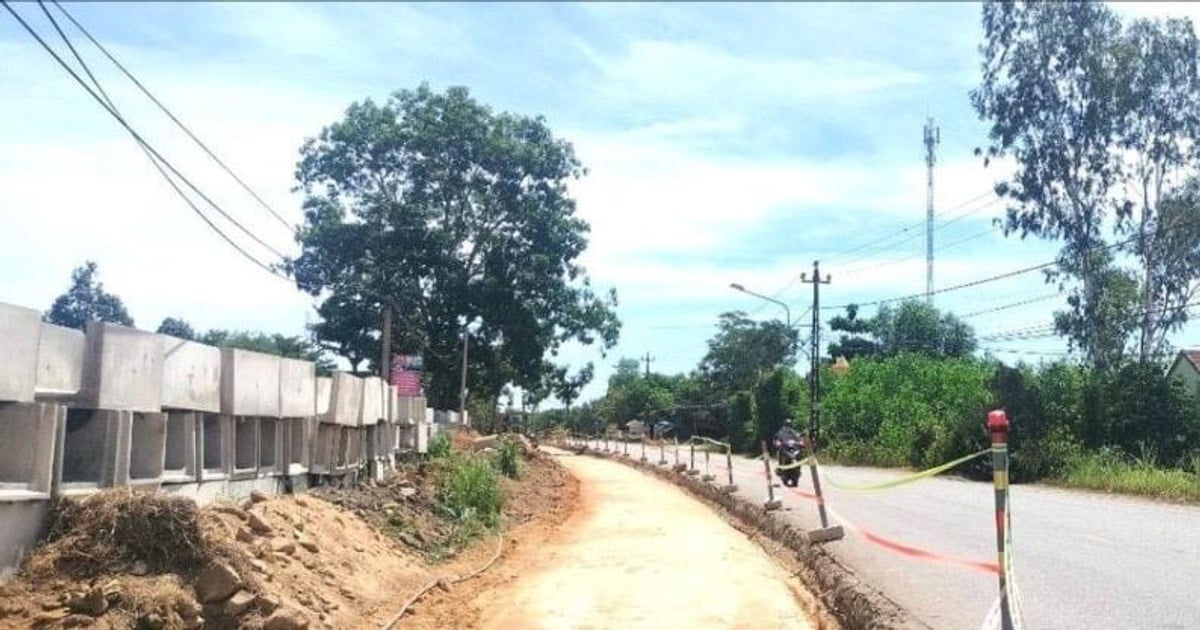The commitment to net zero emissions has had a strong impact on all socio-economic sectors, including shipbuilding. In addition, the International Maritime Organization (IMO) has issued regulations on reducing greenhouse gas emissions, especially reducing the amount of sulfur and other pollutants in marine fuels, aiming to use new fuels such as liquefied natural gas (LNG), methanol, and hydrogen to replace fossil fuels. To implement these commitments, fleets will certainly have to convert the energy used on board and old fleets will have to be replaced.
As of December 2024, the total number of registered ships and vehicles is 1,490 and by 2030, the Vietnamese fleet is expected to be restructured and developed to about 1,600 to 1,750 ships. In addition, the shift of the shipbuilding industry from Europe to Asia will be a great opportunity for the shipbuilding industry to embrace innovation with “green” designs, taking advantage of low-emission technology to serve both domestic and export markets.
Mr. Pham Hoai Chung, Chairman of the Board of Members of the Shipbuilding Industry Corporation, said: Currently, the country has nearly 90 shipbuilding enterprises and more than 410 inland waterway vehicle construction facilities. The Vietnamese shipbuilding industry has created many quality products, from 70,000 DWT bulk carriers, 1,700 TEU container ships, 10,000-20,000 DWT oil-chemical ships, to specialized ships such as tugboats, patrol boats, high-speed passenger ships, oil and gas service ships, and ranks 7th in the world in shipbuilding capacity.
To realize the goal of developing “green” ships, in 2022, the Prime Minister issued Decision No. 876/QD-TTg approving the Action Program on green energy conversion, carbon and methane emission reduction in the transport sector, including a green transformation roadmap in the maritime industry.
Accordingly, in the period 2031-2050, Vietnamese ships operating domestically must comply with the provisions of Annex VI of the MARPOL Convention (International Convention for the Prevention of Pollution from Ships) on energy efficiency and the Strategy for reducing greenhouse gas emissions from ships of the International Maritime Organization (IMO).
Green transformation will open up opportunities to elevate Vietnam's shipbuilding industry, reaching the ability to build ships that meet international standards on emissions, environmental safety and operational efficiency.
Newly built, converted, and imported ships after 2035 will use electricity and green energy, and from 2050, 100 ships operating on domestic routes will use electricity and green energy.
According to Mr. Hoang Hong Giang, Deputy Director of the Vietnam Maritime and Inland Waterways Administration, we need to have solutions on infrastructure, investment incentives, human resources and technology. In particular, the state needs to soon develop a strategy for sustainable shipbuilding industry development, integrating green goals; clearly stipulate financial incentives for low-emission shipbuilding projects, and expand or adjust the Investment Law and Tax Law to support businesses.
 |
Launching of a modern wind power service vessel manufactured by a Vietnamese enterprise. (Photo: TA HAI) |
Relevant levels and sectors need to review and update planning related to the seaport system, ensuring favorable conditions for shipyards in investment promotion activities and clean energy infrastructure linkages. Seaport planning, especially deep-water ports, needs to integrate solutions for clean fuel supply infrastructure to meet the needs of ships running on LNG, methanol, and electricity.
Along with that, it is necessary to supplement Decree No. 111/2015/ND-CP on the development of supporting industries to include the shipbuilding industry in the list of preferential interest rate loans, establish a fund to support technological innovation and infrastructure of the shipbuilding industry; revise a number of policies for shipbuilding projects of the Vietnamese shipbuilding industry to suit current reality; review and simplify inspection procedures and material standards to reduce costs.
Shipyards are promoting the connection between metallurgical, precision mechanical, and electrical-electronic companies to create a synchronized supply chain. In particular, in human resource training, research needs to closely link universities and colleges with businesses to not only train theory but also link with practical research centers, equip infrastructure, and experimental equipment for new fuels.
Shipbuilding units need to promote the invitation of foreign experts and cooperate with large international factories to help Vietnam shorten the gap in new technology.
According to shipbuilding experts, green transformation will open up opportunities to elevate the Vietnamese shipbuilding industry, reaching the ability to build ships that meet international standards on emissions, environmental safety and operational efficiency. If mechanisms, policies, support from the State and determination from businesses are well utilized, the Vietnamese shipbuilding industry will have the opportunity to make a breakthrough, affirming the industry's core role in developing the marine economy, while realizing our country's Net Zero commitment in a practical and effective manner.
Source: https://nhandan.vn/nganh-dong-tau-va-co-hoi-tu-chuyen-doi-xanh-post868211.html


![[Photo] Prime Minister Pham Minh Chinh receives CEO of Standard Chartered Group](https://vstatic.vietnam.vn/vietnam/resource/IMAGE/2025/4/2/125507ba412d4ebfb091fa7ddb936b3b)

![[Photo] Prime Minister Pham Minh Chinh receives Deputy Prime Minister of the Republic of Belarus Anatoly Sivak](https://vstatic.vietnam.vn/vietnam/resource/IMAGE/2025/4/2/79cdb685820a45868602e2fa576977a0)

![[Photo] Comrade Khamtay Siphandone - a leader who contributed to fostering Vietnam-Laos relations](https://vstatic.vietnam.vn/vietnam/resource/IMAGE/2025/4/3/3d83ed2d26e2426fabd41862661dfff2)
![[Photo] Special relics at the Vietnam Military History Museum associated with the heroic April 30th](https://vstatic.vietnam.vn/vietnam/resource/IMAGE/2025/4/3/a49d65b17b804e398de42bc2caba8368)











![[Video] Increasing responsibility and benefits when providing health insurance examination and treatment](https://vstatic.vietnam.vn/vietnam/resource/IMAGE/2025/4/3/c3e3c29e48d3425e8ea6a9c4c2b30640)



































































Comment (0)